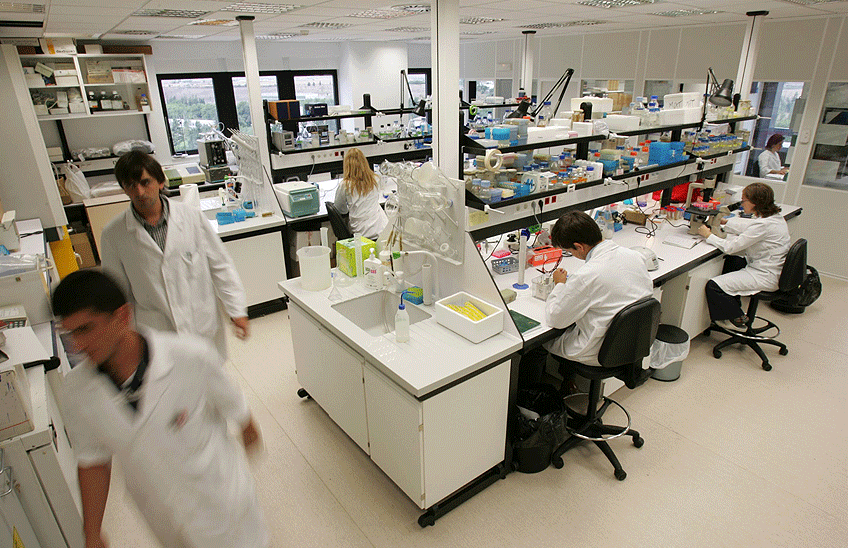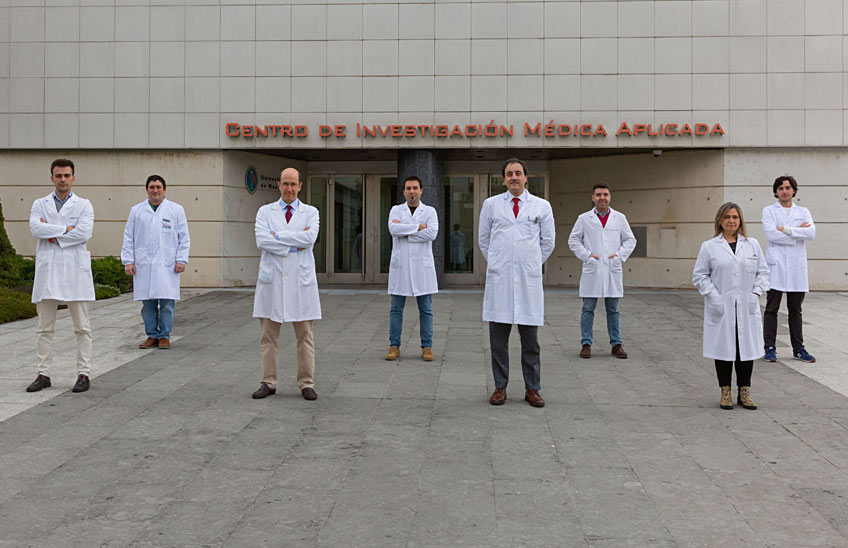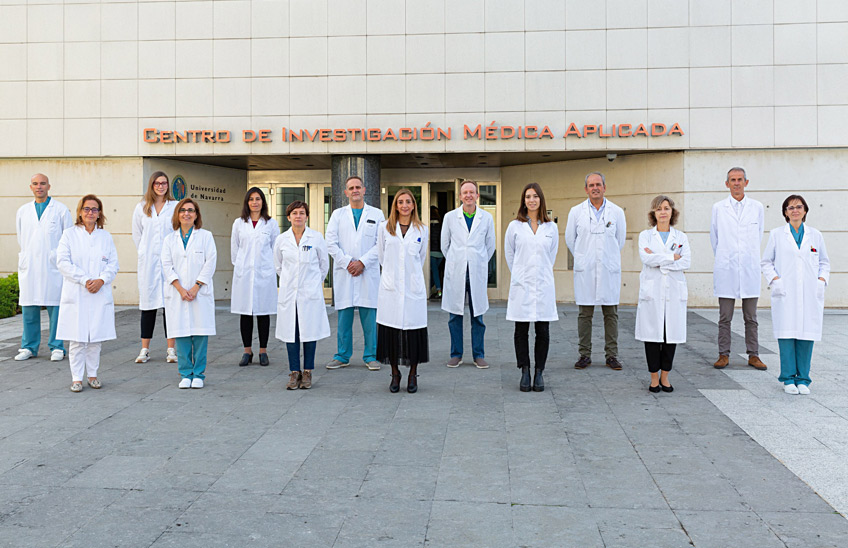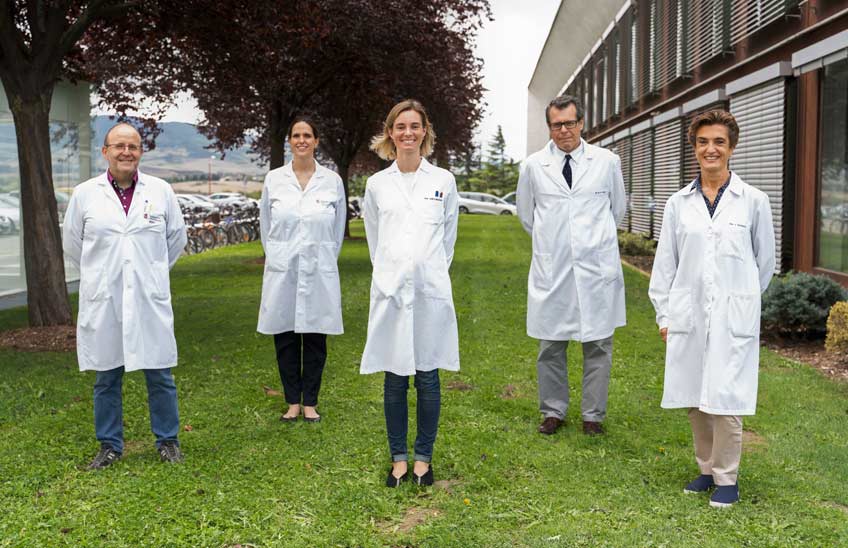A mechanism involved in bile duct cancer has been identified development
Researchers at Cima coordinate a study that confirms the crucial role of the FOSL1 gene.
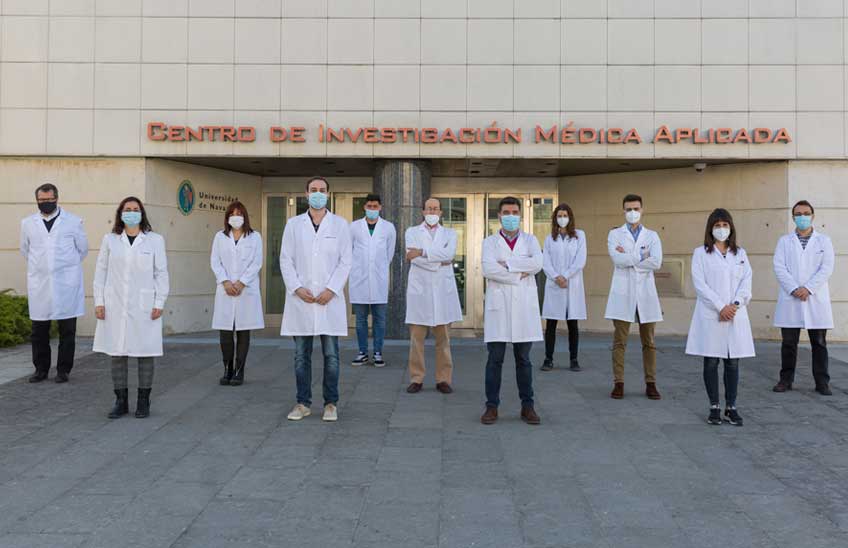
FotoManuel Castells/<br>El Dr. Silve Vicent, en el centro, con investigadores del Cima Universidad de Navarra que participan en el estudio
21 | 04 | 2021
Cholangiocarcinoma is a rare biliary tract cancer subject that evolves silently and is highly resistant to existing treatments, and is associated with poor prognosis. Understanding the molecular intricacies involved in its development is critical to develop effective therapies for these patients.
Scientists at Cima University of Navarra have coordinated an international study that confirms the crucial role of the FOSL1 gene in the onset and progression of cholangiocarcinoma. The results of work, in which researchers from national (Navarrabiomed and Biodonostia) and international (University of Regensburg, Germany, and University of Rochester, USA) groups are participating, are published today in the scientific journal Journal of Hepatology.
"A previous work performed at our laboratory had shown that FOSL1 is involved in the development of lung and pancreatic cancer. Furthermore, we observed that these tumors shared similar molecular characteristics with cholangiocarcinoma. With this premise, we studied the role of FOSL1 in this biliary tumor and saw that the expression of this gene in samples from cholangiocarcinoma patients was elevated with respect to normal tissue. Moreover, its presence was associated with a worse prognosis," explains Dr. Silve Vicent, researcher of the Solid Tumors Program at Cima, member of IdISNA, CIBERONC and ASEICA, and coordinator of work.
New treatment opportunities
Through various analyses to study the function of FOSL1, the scientists demonstrated that this gene is involved in cell proliferation and tumor growth. In addition, the use of high performing techniques made it possible to identify two genes (HMGCS1 and AURKA), whose expression is regulated by FOSL1 and confirmed their role in the development of this tumor subject . 'It should be noted that for both genes there are pharmacological inhibitors, already available in clinical trials. In this work we have been able to confirm that they have an antitumor effect in experimental cellular and mouse models of cholangiocarcinoma. Therefore, this approach opens up new treatment opportunities for patients with cholangiocarcinoma," says Dr. Vicent.
The work has counted with the participation of scientists from the high school de research Sanitaria de Navarra (IdISNA), the CIBER de Cáncer (CIBERONC), the CIBER de Enfermedades Hepáticas y Digestivas (CIBEREHD), the network Española de Proteómica (PROTEORED) and the network European Network for the Study of Cholangiocarcinoma (ENS-CCA). It has also been carried out thanks to funding from the Government of Navarra, the Ministry of Economics and Competitiveness (FEDER-MINECO), the high school de Salud Carlos III (ISCIII) and the family of María Eugenia Burgos de la Iglesia, among other public and private entities.
reference letter bibliographic:
Journal of Hepatology: FOSL1 promotes cholangiocarcinoma via transcriptional effectors that could be therapeutically targeted.
https://doi.org/10.1016/j.jhep.2021.03.028

